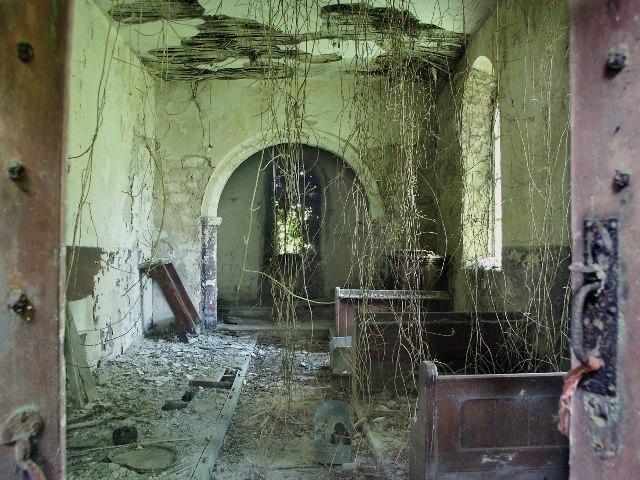This is part four in the “Reform” series by guest writer William M. Shea
Can significant structural reform in the Catholic church happen?
Most would argue that it cannot on the grounds that the ministerial structure is determined by divine intention (see Lumen gentium, #18-29). The hierarchical structure and the distinction between clergy and laity are in effect dogmas. You cannot be a Catholic when you deny a dogma. Those who oppose the ordination of women to the priesthood (John Paul II) and even to the diaconate would argue so. Some would even include required celibacy in the divine aura though the Greeks, Catholic and Orthodox, seem to have missed that point. To be realistic about the political possibilities, structural reform is unlikely ever to happen.
Can the Catholic Church undergo a significant reformation? I doubt it. It had the opportunity to do so in the sixteenth century and refused. However, I don’t at all doubt that the church will change in response to the current mess… and perhaps for the better (at least for a while, at least here and there). My impossible dream is that the College of Cardinals will sooner or later elect to the papacy a monarch who doesn’t believe in monarchy, and who wants genuine and lasting reform. Perhaps Pope Francis is that man, at least in good part. The bishops need to have their feet held to the fire with charity and persistence by the laity, by religious orders, and by women religious until they summon up the courage to abandon papolatry and their own self-referential office. They are desperately stuck in a tar pit of their own making, apparently loving it, and they need to be pulled out of it by their sisters and brothers who love them and the church enough to put their backs to the wheel of history, to reverse the wheel.
Neither the bishops nor the pope, I fear, are capable of transforming a Church they themselves have made. The church must reform The Church. The Church doesn’t have a strong enough motive for self-reform but the laity and the lower clergy do. The hierarchical Church has run into a dead-end. On the rest of us the responsibility falls.
Historical-theological supposition: In the face of their immorality I am driven to the conclusion that the papacy and the episcopacy are a natural, not a supernatural, development of leadership, and have nothing whatsoever to do with Christ’s institution or the positive will of God – at least no more or less than the development of the Mormon apostles and president or the board of trustees of the Southern Baptist Convention.
That it is divine will that the churches be governed I do not doubt. That they be governed by a sacred hierarchy I do doubt.
I reach this conclusion on the basis of a moral judgment of the bishops and the Vatican’s behavior over the past thirty years (and doubtless more) of betrayal of children and parents. No one could possibly be God’s will for the church who behaves like this. You might as well argue that kings rule by divine right and will no matter what they do. The divine aura that the hierarchy exudes must be the result of human hubris, self-promotion and slight of hand, not of divine providence. Papal and episcopal pretensions are exposed as the action and inaction of a corrupt class and by the never ending list of their victims. “By their fruits shall you know them,” said the Lord. (Mt. 7:16-20) Jesus had something else to say about this situation: “You know how among the gentiles those who seem to exercise authority lord it over them; their great ones make their importance felt. It cannot be that way with you.” (Mark 10:41f) Well, dear Lord, it is that way with us now and my case is proven.
I am tempted to work under a simple and, for me, new rule: never believe what anyone says about their own importance and power, especially so when they drag God and Christ into it. Such men cannot possibly have been anointed by the Holy Spirit. No decent pagan would have acted and not acted as they have and claim divine sponsorship. When they define themselves as the Successors to the Twelve they are wailing for the perpetuation of their own office and their own spiritual superiority. But they have surrendered the latter and should lose the former. Jesus named their predecessors “whitened sepulchers” and the description fits them. Remember: Judas was an apostle and a bishop according to their own interpretation of the Johannine account of the Last Supper as the first ordination and consecration. Judas’ spirit lives on, and none of this is new. It has been going on for ages in various forms exposed by the particular shape of papal power in each age. Nevertheless, let’s begin the struggle to clean up the mess by refusing our trust except where they prove themselves worthy of it. There is no authority where authority is not recognized.
Let us not abandon the church but let us abandon its corrupt leadership. Remember: they have and will abandon our children to the perverts rather than create a ripple on the Tiber.[1]
[1] The bishops did not turn the Jesus movement of the first three centuries into a church monarchy. Taking Ireneaus of Lyons as a prime example, they in fact saved the churches from dissolution in the second and third centuries by preserving a version of the apostolic tradition of teaching about Jesus opposed to Gnostic and other esoteric traditions of teaching. Their success kicked off the idea that they in fact were the “successors of the Apostles,” a bit of a stretch for a disparate crowd of administrators who gradually crowded out the other prominent (charismatic?) ministries in the second and third century churches. See the Didache for a picture of a Christian community at the turn of the first century when the Jesus movement was still a movement and not the Catholic, much less the “Roman” Catholic Church, and Clement’s First Letter to the Corinthians for the still deflated episcopal/presbyteral roles. Apostolic Succession as a doctrine is as “meaningful” in our age as the medieval claims that the bread of the Eucharist bleeds. And it is of a piece with papal jurisdiction and infallibility, and makes no more sense than either of them.
image credit: https://commons.wikimedia.org/wiki/File:St_Peter%27s_Church,_Low_Toynton_-_geograph.org.uk_-_99273.jpg













